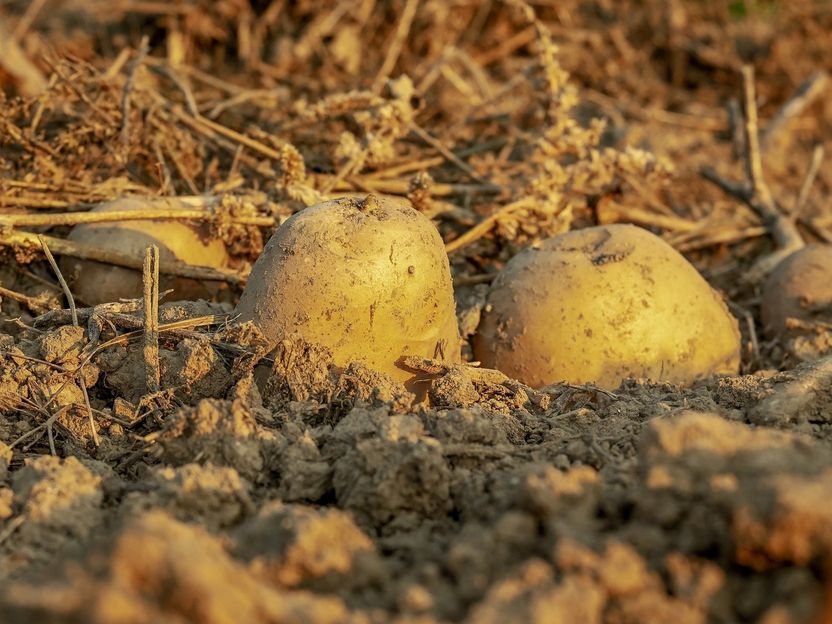Potato canker: crop failures and years of field contamination
H-BRS involved in joint project to combat
The threat of potato wart disease has existed for a very long time, but there is still no solution: In a joint project together with the Julius Kühn Institute (JKI) and the Osnabrück University of Applied Sciences, the Bonn-Rhein-Sieg University of Applied Sciences (H-BRS) is now participating in the fight against potato wart disease. Around 100 years ago, a legal decree was issued to prevent the introduction and spread of the pathogen. And also today potato farmers fear the treacherous infestation with the mushroom, which causes the plant disease and does not only lead to harvest losses: The affected fields are unusable for potato cultivation for many years.

Couleur / Pixabay
The project aims to develop and test methods that can be used to detect and inactivate so-called permanent sori. The mobile fungal spores develop in these permanent sores and can survive there until sufficient moisture stimulates germination and they spread. The methods will later be used in residual materials from the potato processing industry.
The scientists are investigating microscopic, molecular biological, spectroscopic and evidence of which specific volatile substances are released in order to find the fungus called Synchytrium endobioticum on infested plants or in industrial residues. In order to inactivate the microscopically small permanent sori, chemical, physical as well as combined methods are being investigated.
The research group led by Prof. Dr. Peter Kaul at the Institute for Safety Research at the H-BRS is taking on a variety of tasks in the project. This is first of all the spectroscopic evaluation by means of chemometric methods of Dauersori, after these have been subjected to various treatments by the project partners.
Contribution to the Ackerbaustrategie 2035 of the federation
In addition the analytical investigation of the gases emitting from potato plants, potatoes and Resterden takes place at the Campus Rhine brook of the H-BRS starting from September. Here, the H-BRS research team brings with it many years of experience with another invasive species. As with the Asian longhorned beetle, a specific VOC pattern is to be identified in S. endobioticum: VOCs (Volatile Organic Compounds) are volatile organic substances, including for example fragrances. Animals and plants also have typical VOC characteristics, which Professor Kaul also suspects to be associated with this fungus. Once the specific VOC pattern has been identified, the Rheinbach research team will carry out field tests and develop a sampling protocol for general use (Eppo Standard).
The German Federal Ministry of Food and Agriculture (BMEL) is funding the project as part of its programme to promote innovation. Of the total amount, H-BRS has around 300,000 euros at its disposal. The project is intended to make an important contribution to productive and sustainable arable farming and fits into the BMEL's Arable Farming Strategy 2035 with regard to plant protection as well as soil protection and fertility. The research work is scheduled for three years.
Note: This article has been translated using a computer system without human intervention. LUMITOS offers these automatic translations to present a wider range of current news. Since this article has been translated with automatic translation, it is possible that it contains errors in vocabulary, syntax or grammar. The original article in German can be found here.
Most read news
Organizations
Other news from the department science

Get the food & beverage industry in your inbox
By submitting this form you agree that LUMITOS AG will send you the newsletter(s) selected above by email. Your data will not be passed on to third parties. Your data will be stored and processed in accordance with our data protection regulations. LUMITOS may contact you by email for the purpose of advertising or market and opinion surveys. You can revoke your consent at any time without giving reasons to LUMITOS AG, Ernst-Augustin-Str. 2, 12489 Berlin, Germany or by e-mail at revoke@lumitos.com with effect for the future. In addition, each email contains a link to unsubscribe from the corresponding newsletter.




























































